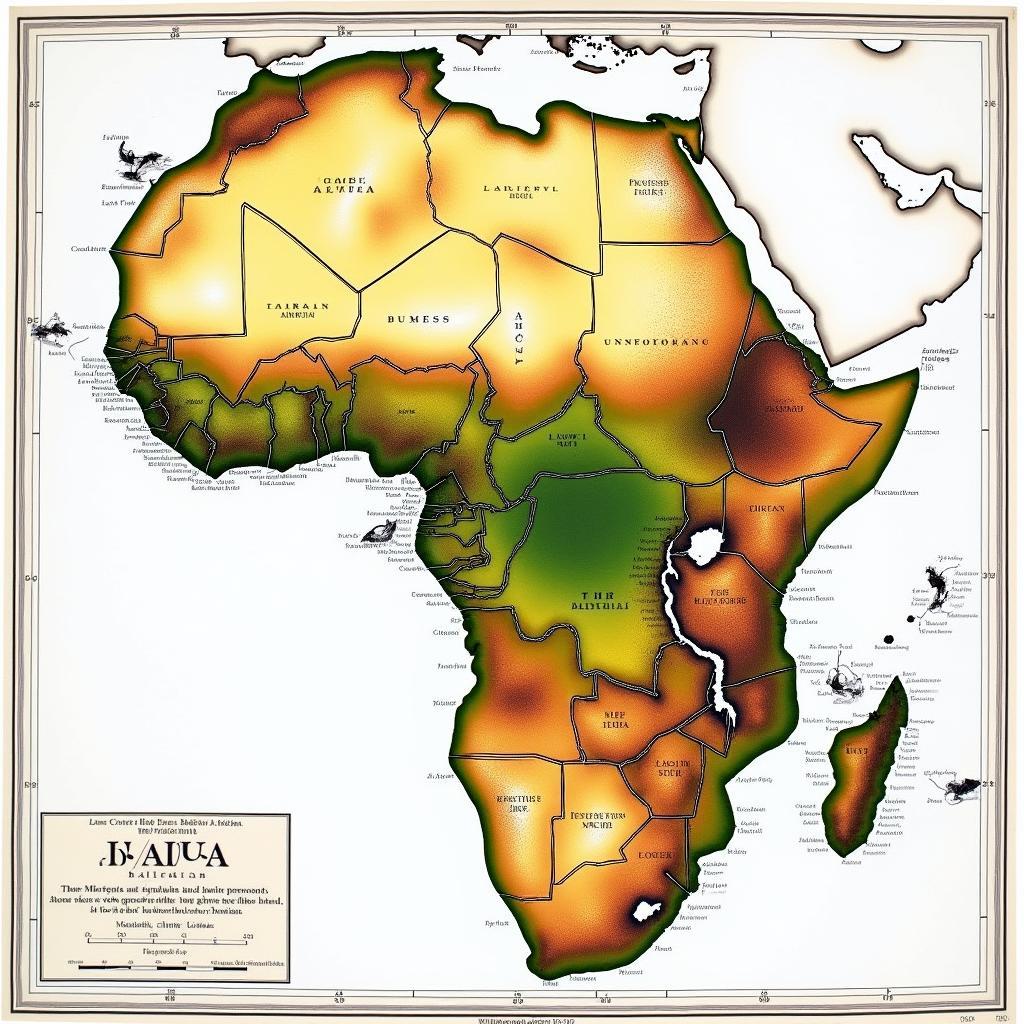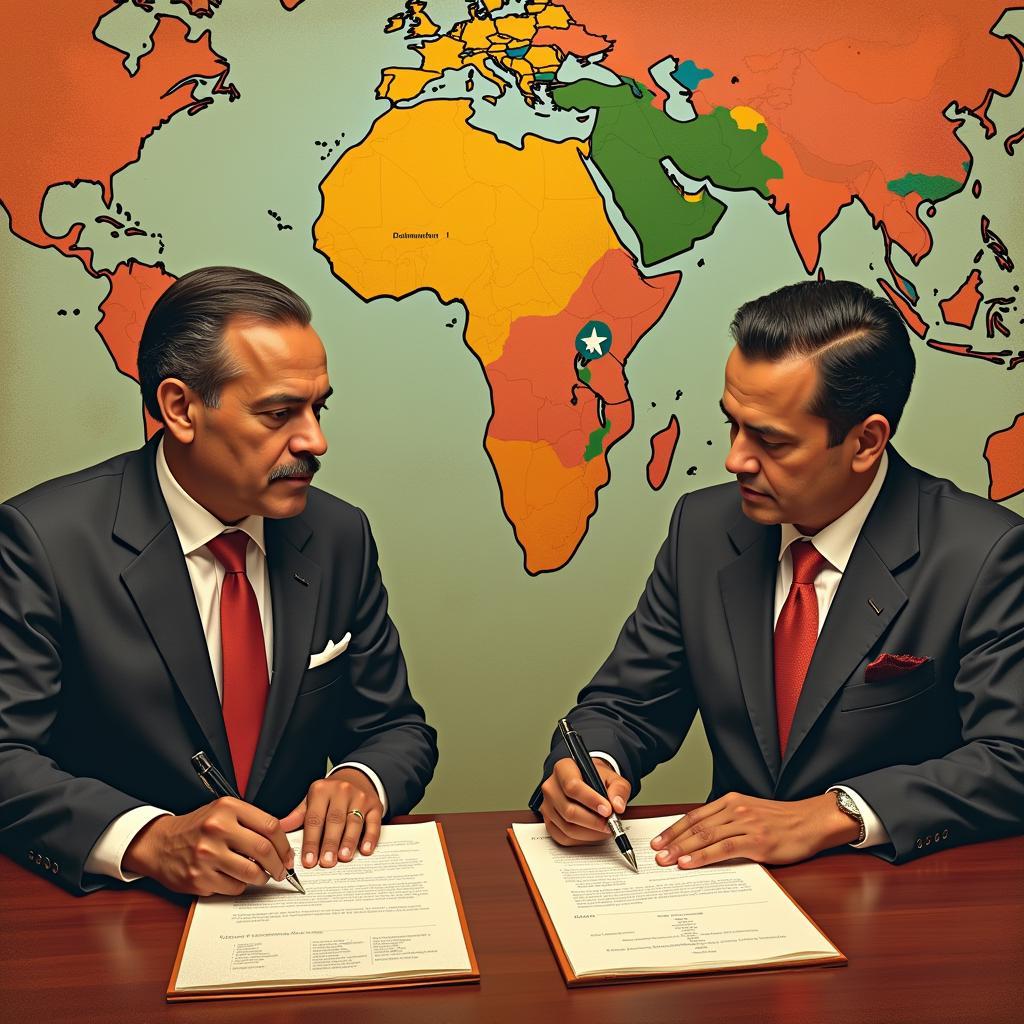African Boundaries: A Deep Dive into Ian Brownlie’s Legacy
The demarcation of African boundaries has been a subject of extensive study and debate, and few scholars have left as profound a mark on this field as Ian Brownlie. His meticulous research, insightful analysis, and unwavering commitment to international law have made him a towering figure in the understanding of African boundaries. This article delves into the significance of his work, exploring the complexities of boundary formation in Africa and the enduring impact of Brownlie’s contributions.
The Challenge of Defining African Boundaries
Establishing clear and undisputed boundaries is crucial for the sovereignty and stability of nations. However, the task becomes remarkably intricate when applied to the African continent. The historical context of colonialism, combined with the continent’s diverse geography and the fluidity of pre-colonial borders, presents a unique set of challenges.
 Map of Africa During Colonialism
Map of Africa During Colonialism
Unlike many other parts of the world where boundaries were often shaped by natural features and long-standing agreements, many African borders were arbitrarily drawn during the scramble for Africa in the late 19th century. European powers, primarily concerned with resource extraction and control, paid little attention to pre-existing ethnic, cultural, or linguistic divisions. This disregard for traditional boundaries has led to enduring tensions, conflicts, and disputes over territory in post-colonial Africa.
Ian Brownlie: A Leading Voice on African Boundaries
It is within this complex historical and geopolitical context that Ian Brownlie’s work emerges as a beacon of clarity and authority. A distinguished British jurist specializing in international law, Brownlie dedicated a significant portion of his career to unraveling the complexities of African boundaries. His influential book, “African Boundaries: A Legal and Diplomatic Encyclopaedia,” stands as a testament to his profound understanding of the subject.
Brownlie meticulously examined historical treaties, colonial documents, maps, and legal pronouncements to shed light on the formation and evolution of African boundaries. His approach was characterized by an unwavering commitment to the principles of international law, emphasizing the importance of uti possidetis juris – the principle that newly independent states inherit the colonial boundaries at the time of independence.
“Professor Brownlie’s work is essential reading for anyone seeking to understand the legal framework governing African boundaries,” remarks Dr. Abena Agyeman, a legal scholar specializing in international boundary disputes. “His meticulous research and objective analysis have provided invaluable insights into the historical context and legal intricacies surrounding these often-contentious borders.”
The Enduring Legacy of Uti Possidetis in Africa
Brownlie’s emphasis on uti possidetis juris stemmed from his belief that upholding the sanctity of existing boundaries, however imperfect, was essential for maintaining peace and stability in the newly independent African states. He argued that while colonial borders were often arbitrary and unjust, deviating from them would open a Pandora’s box of territorial claims and counter-claims, potentially leading to widespread conflict.
 African Leaders Signing an Agreement
African Leaders Signing an Agreement
While Brownlie’s stance on uti possidetis has been widely respected, it has also sparked debate. Critics argue that rigidly adhering to colonial boundaries perpetuates historical injustices and fails to account for the legitimate aspirations of communities divided by these artificial lines. They contend that a more flexible approach is needed, one that allows for peaceful adjustments to borders based on mutual consent and historical considerations.
Conclusion: Navigating the Future of African Boundaries
Despite the ongoing debates, Ian Brownlie’s contributions to the understanding of African boundaries remain unparalleled. His meticulous research, insightful analysis, and unwavering commitment to international law have provided an essential framework for navigating the complexities of territorial disputes in Africa.
While challenges remain, Brownlie’s work serves as a reminder of the importance of dialogue, diplomacy, and respect for international legal principles in resolving boundary disputes. As Africa continues to evolve, his legacy will undoubtedly continue to shape discussions and inform decisions concerning the continent’s boundaries.



